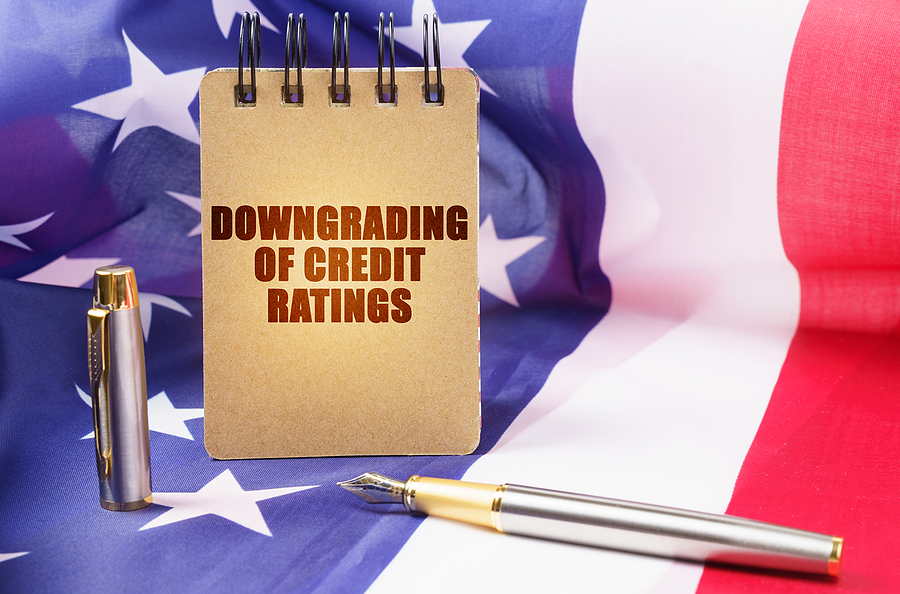What Does a Country’s Credit Downgrade Mean?
What Does a Country’s Credit Downgrade Mean?
A country’s credit downgrade happens when a credit rating agency, like Moody’s, Fitch, or Standard & Poor’s (the big three), decides that a country is less likely to pay back its debts, lowering its credit rating. Countries like the United States sometimes need to borrow money to fund projects like infrastructure, social services, or managing the national debt.
What is A Credit Rating?
Credit ratings give investors an idea of how risky it is to lend money to a specific country. Triple A (AAA) being the best grade and a D being the worst. A “credit downgrade” is essentially the equivalent of your grade slipping from an A to a B or even a D. Now, imagine that concept globally, with billions (if not trillions) of dollars at stake.
A high credit rating is excellent for a country because it implies that it is reliable and more likely to pay back its debts. It’s like having a perfect credit score when applying for a home loan; you’re considered a less risky borrower. But if that rating gets downgraded, it can mean trouble for the borrower. A lower credit rating often means higher borrowing costs because lenders typically want more return for taking on more risk.
A country’s credit downgrade isn’t just a financial issue—it can also influence politics and policy decisions. Leaders may have to make unpopular decisions to improve the country’s economic health, which may not always resonate well with the citizens. Policymakers may argue for increasing taxes or managing public spending, which can impact the country’s citizens.
What is the Ripple Effect?
Moreover, there’s often a ripple effect to a country’s credit downgrade. Investors might withdraw or decrease investments due to the increased risk leading to lower economic growth and, potentially, higher unemployment rates. Plus, a downgrade can impact the strength of a country’s currency in the foreign exchange market.
A country’s credit downgrade is often a complex, intricate implication of economics, which plays a significant role in global finance. Here are some ways the U.S.’s credit downgrade may impact citizens:
- Higher mortgage rates
- Higher credit card interest rates
- The stock market may experience volatility.
- Higher loan rates on cars, etc.
- The rating may impact the bond market.
- The economy may slow.
Does Downgrade mean Default?
Government credit ratings are like personal credit scores for individuals since they provide helpful information to lenders. However, it’s important to understand the potential risk and that a credit downgrade is not a guarantee of default.
SWG3054142-0823a The sources used to prepare this material are believed to be true, accurate and reliable, but are not guaranteed. This information is provided as general information and is not intended to be specific financial or tax guidance. When you access a link you are leaving our website and assume total responsibility for your use of the website you are linking to. We make no representation as to the completeness or accuracy of information provided at this website. Nor is the company liable for any direct or indirect technical or system issues or any consequences arising out of your access to or your use of third-party technologies, websites, information and programs made available through this website.
In addition, Southern Financial Wealth Management specializes in providing strategies and guidance for those seeking a better retirement lifestyle. If you have five million dollars or $50,000 retirement savings, we can ensure it works as hard. As a result, we offer our experience and knowledge to help you design a custom strategy for financial independence. Contact us today to schedule an introductory meeting! Contact the office today to schedule an introductory meeting or review of your current financial plan.


